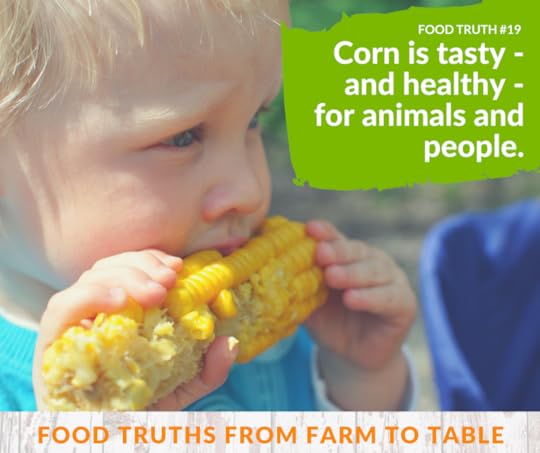The Demonization of the Corn Stalk

Meg, a friend and fellow professional speaker from suburban Chicago, visited our farm with her daughter, Frankie, on a beautiful blue-sky summer weekend. Frankie soon started asking a furry of questions, including, “What is that growing in the field? Isn’t that sweet corn?” Frankie had correctly identified it as corn, but then we had a 30-minute discussion about the differences in types of corn with these city friends.
“See how most of the corn is a bunch taller and has bigger stalks than other corn? That’s field corn,” I explained. Most of the time in the Midwest, you see field corn. Field corn is not sweet corn. It is grown as livestock feed, use in human food, or for ethanol. Field corn comprises 99 percent of the corn crop in the United States. Humans can eat it, but field corn is starchy and bland, without the sugar contents found in sweet corn. There’s nothing “wrong” with field corn—and the fields are not filled with poisons—but field corn just doesn’t taste good until it is processed into a product.
Unfortunately, corn has been vilified in recent years, from movies being
made about how corn is poisonous, farmers being forced to grow corn, and how
such a monoculture crop is destroying the environment.
There’s no need to demonize the corn stalk, though—corn is healthy for both animals and people. Corn is an important part of a diet, whether it is sweet corn in the vegetable case, corn meal in the baking aisle, or white corn in tortilla chips. Corn is also essential to livestock as an energy source; in other words, it helps to feed livestock to produce meat, milk, and eggs. That’s actually where the majority of corn goes: 34 percent of field corn is used as livestock feed, according to the USDA. Animals need corn. It has to do with energy, feed palatability and a properly functioning rumen in cattle.
Read more
at Food Truths from Farm to Table to arm
yourself with 25 truths you urgently need to know about food so you can
shop without guilt, confusion, or judgment. A new book, Food Bullying, releases November 5 to upend the way you
think about eating choices.



